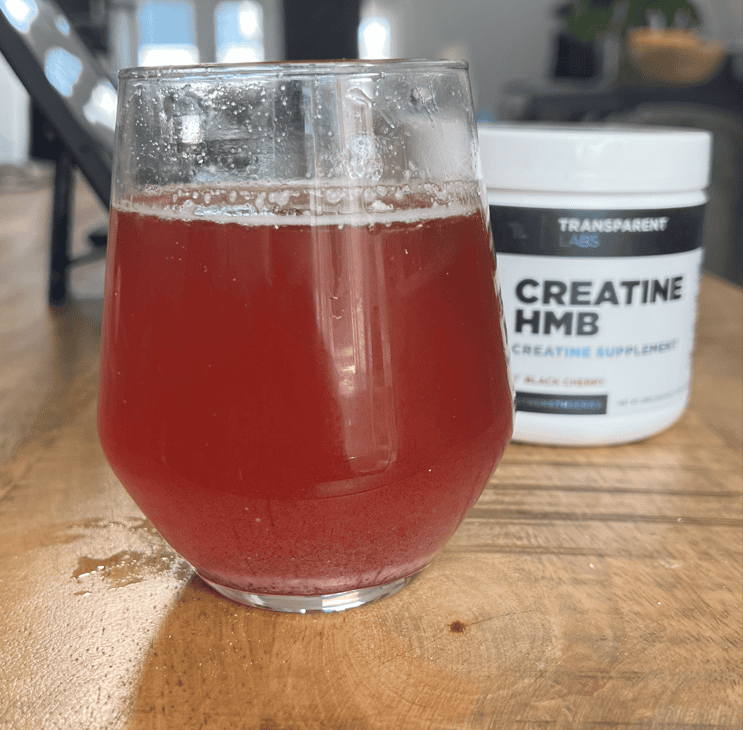
If you've ever set foot in a gym or dabbled in fitness, you've likely heard of creatine.
This naturally occurring compound has long been associated with muscle gains and improved athletic performance.
But what about its role as a pre-workout?
This article dives deep into the science and practicality of using creatine before hitting the gym, helping you make an informed decision for your fitness journey.
Creatine is a naturally occurring compound often misunderstood as just a muscle-building supplement.
However, its role extends beyond that, including its potential as a pre-workout ingredient.
This article will explore the science, benefits, and considerations you should know.

Creatine is a molecule produced in the body and found in various foods.
It's primarily stored in muscles and used for energy during high-intensity, short-duration activities.
But is it a pre-workout?
Let's find out.
Research shows that creatine can improve strength, power, and muscle mass.
It works by increasing the body's ATP levels, the primary energy currency for cells.
Traditional pre-workouts often contain a blend of ingredients like caffeine, beta-alanine, and sometimes creatine.
However, creatine alone doesn't offer the immediate energy boost that stimulants like caffeine do.
Creatine is a fascinating compound in its role as a pre-workout.
Unlike traditional pre-workout ingredients like caffeine, which give you an immediate energy boost, creatine works on a more cellular level.
It helps regenerate ATP (adenosine triphosphate), the primary energy currency in your cells.
This is particularly useful for high-intensity, short-duration activities like weightlifting or sprinting.
Over time, consistent creatine supplementation can lead to higher creatine phosphate stores in your muscles.
This allows for quicker ATP regeneration during workouts, leading to improved performance, reduced muscle fatigue, and even better post-workout recovery.
Research shows that creatine can be particularly effective for repetitive bouts of high-intensity exercise.
So, while you may not feel an instant 'kick' as you would with caffeine, the benefits of creatine accumulate, offering sustained energy and performance gains over time.
Creatine is not just another supplement; it's backed by science to improve your workout performance.
The benefits are multifaceted, from increasing muscle strength to even providing mental clarity.

Taking creatine as a pre-workout supplement can be a game-changer if you want to maximize your workout performance.
Creatine primarily increases your muscles' phosphate stores, which produce ATP during high-intensity, short-duration activities.
This means you can perform better, whether lifting weights or sprinting.
Here's why using creatine pre-workout makes sense:
While taking creatine pre-workout has advantages, the good news is that it can be effective regardless of when you take it.
The key is maintaining consistent creatine levels in your muscles, which can be achieved through regular supplementation.
Whether you prefer to take it before, after, or even during your workout, the benefits remain largely the same as long as you're consistent.
It's worth noting that many pre-workout supplements on the market already include creatine in their ingredient list.
This offers a convenient way to get your creatine dose and other performance-enhancing ingredients like caffeine or beta-alanine.
However, if you're taking a pre-workout that already contains creatine, adjust your standalone creatine supplementation to avoid excessive intake.
By effectively using creatine in your fitness routine, you can optimize your workouts and achieve better results over time.
While generally safe, creatine can interact with certain medications and isn't suitable for everyone.
Some reported side effects include water retention and digestive issues.
For more on pre-workout stimulants, check out this article: What is Stim in Pre-Workout?
Creatine as a pre-workout is best suited for athletes and fitness enthusiasts looking to improve performance in high-intensity, short-duration activities.
Individuals with kidney issues or those taking certain medications should consult a healthcare provider before using creatine.

Is creatine safe to use as a pre-workout supplement?
Yes, creatine is generally considered safe when used at recommended doses. However, it's always a good idea to consult a healthcare provider if you have any pre-existing medical conditions.
How much creatine should I take as a pre-workout?
The standard dose for creatine supplementation is 5 grams per day. Some people initially opt for a loading phase, but it's unnecessary for everyone.
Can I mix creatine with other pre-workout ingredients like caffeine?
Yes, creatine can be mixed with other pre-workout ingredients. However, be cautious about the total amount of each ingredient to avoid potential side effects.
Does creatine cause water retention?
Creatine can cause water retention in the muscles, which is generally not harmful and can make your muscles appear fuller.
Is creatine beneficial for both men and women?
Absolutely. Both men and women can benefit from creatine supplementation, especially for high-intensity, short-duration activities.
Can I take creatine on rest days?
Yes, taking creatine on rest days can help maintain muscle creatine levels, ensuring you're ready for your next workout.
Is creatine beneficial for endurance sports?
While creatine is most effective for high-intensity, short-duration activities, some research indicates it may also benefit endurance athletes, although the effects are less pronounced.
Do I need to cycle off creatine?
No scientific evidence suggests that you need to cycle off creatine. Long-term use appears safe, but it's always good to consult a healthcare provider for personalized advice.
What are the potential side effects of creatine?
Common side effects are minimal but can include stomach upset and water retention. Always start with a lower dose to assess your tolerance.
Can I take creatine if I'm on medication?
If you're on medication, especially for kidney or liver issues, it's crucial to consult with a healthcare provider before starting any creatine supplementation.
Creatine is a versatile and effective supplement, especially when used as a pre-workout aid.
Its science-backed benefits range from boosting muscle strength to enhancing recovery, making it a staple for anyone serious about their fitness journey.
While the timing of creatine intake can be flexible, using it pre-workout can offer immediate performance gains.
Whether you're a seasoned athlete or a fitness newbie, incorporating creatine into your regimen can be a game-changer.
Useful Links
 About FitFrek
About FitFrekFitFrek operates as an independent platform, offering comprehensive workouts, programs, routines, guides, and unbiased reviews to accelerate your progress. We pride ourselves on our honesty, delivering straightforward and candid insights. FitFrek does not offer medical advice, diagnosis, or treatment services.